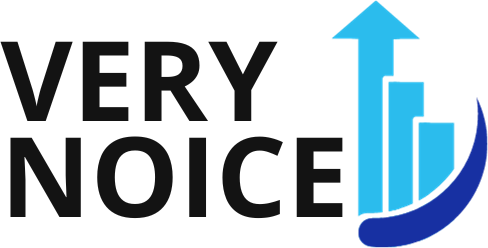- Remote side hustles build valuable skills: From communication and marketing to coding and design, side hustles help you learn abilities that can boost your career.
- Freelance writing and tutoring enhance expertise: Both improve research, teaching, and communication skills while generating income.
- Virtual assistant and transcription roles sharpen organization and focus: These roles teach time management, digital communication, and attention to detail.
- Digital and creative hustles grow entrepreneurial skills: Social media management, graphic design, web development, and content creation teach marketing, tech, and client management.
- E-commerce and online courses teach business and marketing strategies: Running stores or courses strengthens understanding of operations, audience engagement, and sales.
- Consistency and goal-setting maximize success: Setting clear goals, managing time effectively, networking, and tracking progress are essential for long-term results.
In the digital world, making money from home isn’t just convenient—it’s also a way to level up your skills for future opportunities. Remote side hustles are perfect for people looking to supplement their income while learning new abilities that could boost their career prospects. Whether you’re a student, a parent, or someone looking to diversify your income streams, there’s something on this list for you.
1. Freelance Writing: Can You Turn Words into Cash?
Freelance writing is one of the most versatile remote side hustles. It goes beyond simply crafting blogs or articles—it’s about creating engaging narratives, communicating complex ideas clearly, and tailoring your writing to fit different audiences.
Why it builds skills:
- Research abilities: Writing requires gathering and verifying information, which strengthens your investigative skills.
- Written communication: You’ll learn to structure arguments, write persuasively, and maintain a professional tone.
- Marketing and self-promotion: As a freelancer, you’ll pitch your services, craft proposals, and manage client relationships.
How to get started:
- Build a portfolio: Use platforms like Contently, Clippings.me, or Upwork to showcase your work.
- Pitch effectively: Reach out to blogs, magazines, and small businesses with tailored proposals.
- Start small: Take on low-cost projects to gain experience and credibility.
Freelance writing can include product descriptions, email campaigns, SEO content, and long-form articles. The flexibility allows you to experiment with different niches, refine your skills, and discover which type of writing you enjoy most.
2. Virtual Assistant: Could You Organize Someone Else’s Life?

Virtual assistants (VAs) help business owners and professionals manage administrative and operational tasks remotely. Responsibilities vary widely, including email management, scheduling, customer support, social media posting, or bookkeeping.
Why it builds skills:
- Organizational skills: Juggling multiple tasks hones your ability to prioritize and manage time efficiently.
- Digital communication: Handling emails, chats, and meetings sharpens professional online etiquette.
- Project management basics: Coordinating calendars, deadlines, and client requests introduces foundational project skills.
Getting started:
- Assess your strengths: Identify skills like Excel, social media, or calendar management.
- Sign up for VA platforms: Try Belay, Time Etc, or Fancy Hands.
- Start with small clients: Gradually expand to larger projects or retainers.
Being a VA is ideal if you enjoy structure, helping others streamline operations, and learning how businesses function behind the scenes. It’s a pathway to more advanced roles in operations or management.
3. Online Tutoring: Can Teaching Improve Your Knowledge?
Online tutoring allows you to share your expertise while reinforcing your own understanding. It covers a wide range of subjects—from math and science to languages, music, or even niche skills like coding.
Why it builds skills:
- Communication and public speaking: Explaining concepts clearly enhances interpersonal skills.
- Deepens knowledge: Teaching reinforces your understanding and uncovers gaps in your expertise.
- Patience and adaptability: Every student learns differently, requiring flexibility in teaching approach.
How to start:
- Register on platforms: Chegg Tutors, Tutor.com, or Wyzant are popular choices.
- Set your rate: Determine what you’re worth based on experience and subject expertise.
- Offer variety: Mix group sessions and one-on-one tutoring to broaden your experience.
Tutoring doesn’t just provide extra income—it builds confidence, boosts interpersonal skills, and can even lead to private coaching or content creation opportunities.
4. Social Media Management: Can You Grow a Brand Online?
Social media management is a growing field where you help brands engage audiences, increase visibility, and drive sales. Beyond posting content, it involves strategy, analytics, and creative storytelling.
Why it builds skills:
- Marketing and branding: Learn how to build an online identity for different clients.
- Creativity and copywriting: Crafting posts requires attention to tone, style, and engagement.
- Analytics and strategy: Tracking metrics like engagement, reach, and conversions teaches data-driven decision-making.
Getting started:
- Manage your own accounts first: Build your personal social media presence as practice.
- Offer services locally or online: Small businesses often need help establishing a presence.
- Learn tools: Familiarize yourself with Hootsuite, Canva, Google Analytics, and scheduling software.
This hustle allows experimentation with content, campaigns, and trends while gaining marketable marketing skills.
5. Graphic Design: Can Creativity Pay the Bills?
Freelance graphic design is ideal for visual thinkers who want to combine art with commerce. Tasks range from logo creation and website graphics to marketing materials and social media visuals.
Why it builds skills:
- Design and software proficiency: Master tools like Adobe Illustrator, Photoshop, and Canva.
- Attention to detail: Creating professional visuals requires precision and aesthetic judgment.
- Client management: Negotiating, pitching, and delivering designs strengthens communication and project management.
How to start:
- Learn the tools: Online tutorials, courses, and practice projects help beginners build expertise.
- Create a portfolio: Show potential clients your best work, even if it’s mock projects.
- Find clients: Fiverr, Upwork, or direct outreach to small businesses are good starting points.
Even simple design projects like social media graphics or banners can turn into larger freelance contracts over time.
6. Web Development: Can Coding Open Doors?
Web development is an in-demand skill that enables you to create websites, apps, or tools. Freelancing in this space gives you hands-on experience in problem-solving and logical thinking.
Why it builds skills:
- Logical thinking and problem-solving: Coding teaches structured approaches to complex problems.
- Tech foundation: Knowledge of coding languages lays the groundwork for tech careers.
- Project management: Handling client requests, deadlines, and revisions builds planning skills.
Getting started:
- Learn coding basics: HTML, CSS, JavaScript, and Python are widely used.
- Build a portfolio: Create sample websites or apps to showcase your skills.
- Offer freelance services: Start on platforms like Upwork, Freelancer, or local business outreach.
Web development is not only lucrative but also produces tangible outputs you can proudly showcase to future clients or employers.
7. Transcription Services: Can You Listen and Type Fast?

Transcription work involves converting audio or video content into written text. It’s ideal for meticulous individuals with strong typing skills.
Why it builds skills:
- Listening and comprehension: Accurately transcribing requires focus and attention to detail.
- Typing speed and accuracy: Efficiency improves over time, making you faster and more precise.
- Time management: Transcription deadlines teach discipline and prioritization.
Getting started:
- Sign up for platforms: Rev, TranscribeMe, or GoTranscript are great starting points.
- Practice regularly: Work on different accents, audio qualities, and technical content.
- Specialize: Consider medical or legal transcription for higher-paying opportunities.
Transcription is low-cost, flexible, and can lead to administrative or content-related roles.
8. E-commerce or Dropshipping: Can You Sell Without Inventory?
E-commerce and dropshipping let you sell products online without holding inventory. You handle marketing, customer service, and store management.
Why it builds skills:
- Digital marketing: Learn ad campaigns, SEO, and social media promotions.
- Customer service: Handling inquiries and complaints teaches communication and problem-solving.
- Business management: Gain insight into operations, pricing, and logistics.
How to start:
- Choose a niche: Identify a market with demand and low competition.
- Set up a store: Shopify, Etsy, or WooCommerce make it easy to launch.
- Market products: Use social media, email marketing, or paid ads to reach customers.
Even modest initial profits are valuable for learning entrepreneurial skills that can scale over time.
9. Content Creation for YouTube or TikTok: Can You Build an Audience?
Creating video content is an entrepreneurial venture that combines storytelling, marketing, and tech skills. It’s a chance to grow a personal brand while experimenting with different formats.
Why it builds skills:
- Storytelling and public speaking: Develop a unique voice and engage audiences.
- Video editing: Learn software and techniques to produce professional-quality content.
- Digital marketing: Understand analytics, trends, and strategies to grow followers.
Getting started:
- Pick a niche: Focus on something you’re passionate about.
- Invest in equipment: Start with a smartphone or basic camera setup.
- Learn editing tools: Try Final Cut Pro, Premiere Pro, or CapCut to enhance your videos.
This hustle may take time to earn money, but the skills you gain are transferable to marketing, production, or social media careers.
10. Online Course Creation: Can You Teach and Earn at the Same Time?
Creating online courses allows you to monetize expertise while strengthening teaching and content development skills. Platforms like Udemy, Teachable, and Skillshare make it easy to reach learners worldwide.
Why it builds skills:
- Subject mastery: Explaining concepts deepens your own understanding.
- Content planning: Structuring lessons improves curriculum design and presentation skills.
- Marketing and platform management: Promoting courses teaches digital sales and audience engagement.
How to start:
- Choose a topic: Focus on a skill or knowledge area you excel in.
- Break it into lessons: Develop modules that are easy to follow.
- Promote strategically: Use social media, email lists, and niche communities to reach learners.
Online courses position you as an authority, creating opportunities for consulting, coaching, or speaking engagements.
Tips to Maximize Your Remote Side Hustle Success
- Set clear goals: Know whether you’re hustling for extra income, skill-building, or both.
- Time management: Dedicate specific hours each week to your side hustle.
- Keep learning: Invest in online courses, tutorials, or webinars to stay ahead.
- Network: Connect with others in your field through social media or forums.
- Track your progress: Measure skill growth and income to adjust your strategy.
Final Thoughts
Remote side hustles are more than just a way to make money—they’re an opportunity to learn new skills, expand your network, and even pivot to full-time careers if you choose. Whether you enjoy writing, teaching, coding, designing, or creating, there’s a remote side hustle that aligns with your strengths and interests. By dedicating time and effort, you can earn income while gaining skills that will benefit your professional and personal growth for years to come.

